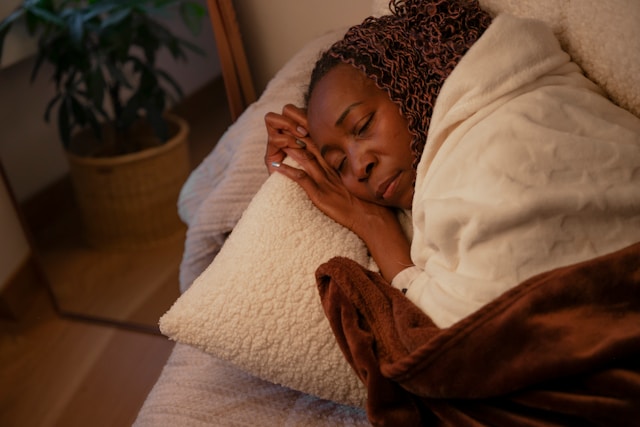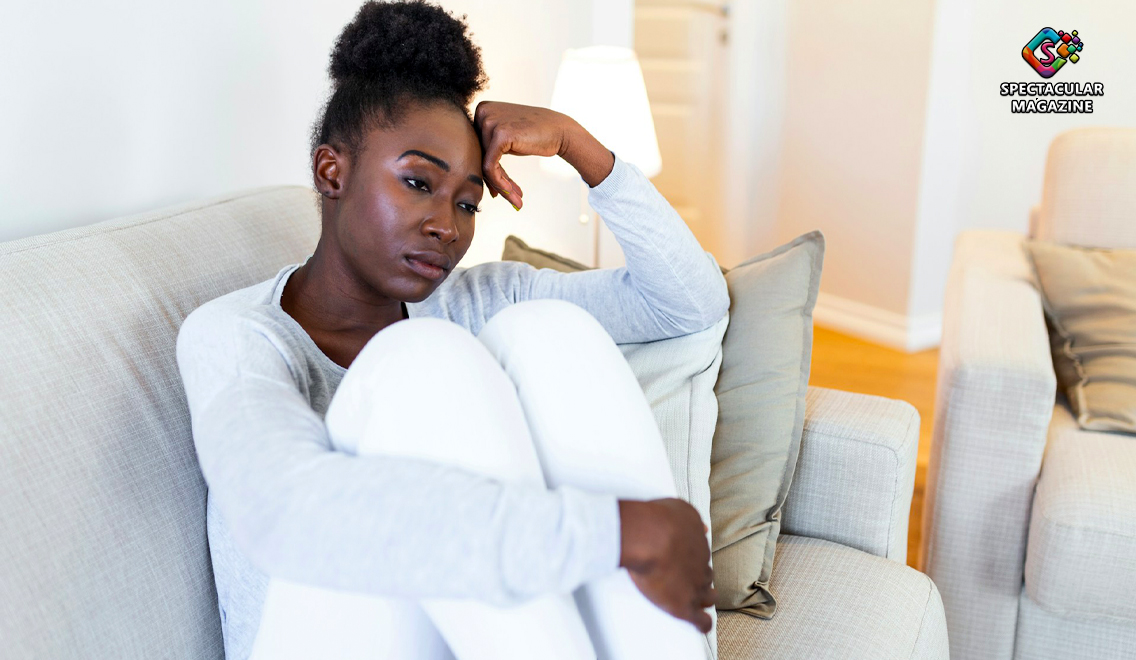Chronic Stress Is Killing Black Women, Expert Says
There’s been a lot of headlines recently about “the glass cliff” – the phenomenon where Black women are placed in positions of senior leadership during crises without being given the resources to succeed. In simple terms, Black women are set up to fail.
Meanwhile, as they are busy advancing to senior-level positions, breaking the glass ceiling, and juggling multiple jobs (nearly 31% of Black women who work full time also have a part-time job), Black women are more likely to deal with chronic stress and stress-related health issues.
These high-performing tendencies of Black women, as well as the necessity to work multiple jobs, connect to feelings of burnout and health-related issues. Perhaps, rest and self-care are the antidotes to promote mental and emotional health.
But what does it mean for Black women to simply rest, and is it possible?
Jasmine Marie, CEO and founder of black girls breathing® and a breathwork practitioner, is on a mission to help Black women navigate the specific challenges they face in society. She created a subscription community called Sunday balm® community, which offers on-demand mental health resources such as HD guided breathwork videos, audio meditations, live breathwork sessions, daily check-ins, and more. As well as mental health resources, the goal is to provide cultural resources that are relevant to what Black women experience on a daily basis.
Marie understands the chronic stress that Black women face in professional spaces, the health-related effects, and how to create more positive health outcomes.
The Impact of Chronic Illness
 Centuries of violence, discrimination, and microaggression have had a deep impact on the mental and physiological well-being of the Black community, specifically Black women. Studies show that Black women are more likely than any other ethnic group to die from cardiovascular disease, hypertension, stroke, lupus, and several cancers.
Centuries of violence, discrimination, and microaggression have had a deep impact on the mental and physiological well-being of the Black community, specifically Black women. Studies show that Black women are more likely than any other ethnic group to die from cardiovascular disease, hypertension, stroke, lupus, and several cancers.
Marie shares that chronic stress is the underlying symptom of many of these physical and mental diseases that Black women over-index on and that lead to fatalities.
“Overworking and tying our innate values to our productivity leads to heightened levels of chronic stress,” she said. “Simply put, chronic stress is killing us.”
How Societal Stressors Connect to Burnout
Studies show that Black women leaders are more ambitious than their counterparts, but they are more likely to be questioned, scrutinized, and face demeaning behavior.
“We’ve been conditioned since the cotton fields that our work is tied to our value,” Jasmine Marie says. “That on top of being paid significantly less than our non-Black peers while being the fastest growing demographic receiving advanced degrees creates a cyclical phenomenon of constantly working not to get ahead, but just to make ends meet.”
Moreover, Black women often wear the title of caretaker. Recent studies show that Black women provide critical support to families with 58% using some of their own money to help/support their extended family, while 47% of all adults are doing the same.
Marie explains that even as many Black women find themselves earning salaries and entering esteemed positions, they are often then providing for those in their immediate and extended family who are in need.
“This creates another layer of pressure and fearful belief that if we rest, someone who depends on us will go without,” she says.
Preventative Strategies to Reduce Stress
 To protect their mental and emotional health, Marie encourages unlearning the mindset that “you don’t have time to rest,” which she says is extremely hard for Black women. When your nervous system is in a fight-or-flight mode, and that is your norm, you’re likely responding to the everyday stressors in life with more reactivity – feeling triggered, irritable, and experiencing increased bouts of depression.
To protect their mental and emotional health, Marie encourages unlearning the mindset that “you don’t have time to rest,” which she says is extremely hard for Black women. When your nervous system is in a fight-or-flight mode, and that is your norm, you’re likely responding to the everyday stressors in life with more reactivity – feeling triggered, irritable, and experiencing increased bouts of depression.
“I see it often in our work, an extreme inability to ‘do nothing’ and rest,” Marie said. “It takes practice.”
She also suggests breathwork, an active form of meditation that can reframe the nervous system’s response to everyday triggers, stressors, and trauma, as trauma doesn’t live in our minds but in our bodies.
“Simply taking the time to carve out 30 seconds to a minute of intentional breathing and coaxing your nervous system can help you respond to whatever is going on in your life from a grounded space,” she says.


